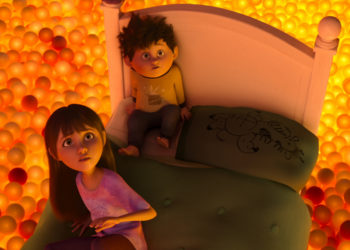This is an edition of Time-Travel Thursdays, a journey through The Atlantic’s archives to contextualize the present. Sign up here.
Could be the weather, could be the news, could be the state of my digestion, but right now I’m in the mood for a proper American poet-buffoon. A poet-buffoon, that is, on the American scale: a figure of swashbuckling vulnerability, ridiculous and unstoppable, friend to the dispossessed, personal frequenter of the edge of things, orating and chanting and moaning in ecstasy and getting himself arrested. I’m in the mood for an Allen Ginsberg.
So into The Atlantic’s archive I moodily go, hunting for Ginsbergiana.
There are a couple of examples, 20 years apart: a poem from the July 1986 issue titled “I Love Old Whitman So,” and a pro-weed essay from 1966, “The Great Marijuana Hoax.” The essay, according to the Ginsberg biographer Michael Schumacher, “was well conceived, argued, and documented, and its appearance in one of the country’s most highly respected magazines gave it a further sense of credibility among the ‘squares.’” (It still sounds like Ginsberg, though: “I therefore do know the subjective possibilities of marijuana and therein take evidence of my own senses between my own awareness of the mysterious ghastly universe of joy, pain, discovery, birth & death.”)
There’s also some interesting Atlantic coverage of Ginsberg-related phenomena. For readers in 1966 who may have been lingeringly confused as to the precise nature of the Beat Generation (founding member: Allen Ginsberg), Dan Wakefield offers a helpful definition: “The Beat Generation is the name of a young people’s social, literary, and travel club that started up in this country after World War II.” And in 1967, Faye Levine, writing about “The New Calcutta,” zeroes in on Ginsberg’s time in that city, where his fertile, fomenting poet-buffoon presence “bolstered an incipient, antiestablishment literary movement, the Hangries—‘hungry and angry’—who were demanding economic, sexual, and aesthetic freedom from the old order.” The Hangries meant business, Ginsberg-style: “They published works widely condemned as ‘obscene,’ and threatened to hold a nude parade.”
The first piece of Ginsberg verse to appear in The Atlantic, however—“Morning in Spring,” from April 1955—is not by Allen. It’s by Louis Ginsberg, his long-suffering minor-poet father. And it begins like this:
One morning when I went downtown,
I felt such sunlight capsize down
That streets were glutted with more gold
Than all my heart could ever hold.
I thought a glory much like this
Must have been poured from Genesis.
“Capsize”: that’s a great verb. And aren’t they rather moving, these modestly rapturous, small-town-visionary lines? Especially when one considers that at the exact moment that Ginsberg Sr. was being published in The Atlantic, Ginsberg Jr. was in North Beach, San Francisco, writhing through the early drafts of “Howl.” The mighty, shuddering “Howl”: his hymn to the mad ones, the ones who “bared their brains to Heaven under the El and saw Mohammedan / angels staggering on tenement roofs illuminated.” It’s as if the father, with care and quiet formality, has chiseled open this discreet portal to the divine, only to watch his son go rocketing through it with his buttocks on fire.
Poet-to-poet, the two Ginsbergs were always generous with each other. Upon the publication of “Howl” in 1956, Louis wrote to Allen in gentle remonstration: “There is no need for dirty, ugly words.” But Louis also saluted the power of the poem, the gush of the poem, “a hot geyser of emotion suddenly released in wild abandon from subterranean depths of your being.” Fourteen years later, Allen was writing the introduction to Louis’s third book, Morning in Spring. He took the job seriously, according to Schumacher: “To prepare himself for the task, he read and took copious notes on his father’s poetry, treating the individual poems as if they were the works of a contemporary rather than the writings of a relative.” And what he wrote was beautiful.
“I weep at his meekness and his reason, at his wise entrance into his own mortality and his silent recognition of that pitiful Immensity he records of his own life’s Time, his father’s life time, & the same Mercy his art accords my own person his son.”
The post Allen Ginsberg, Great American Poet-Buffoon appeared first on The Atlantic.




